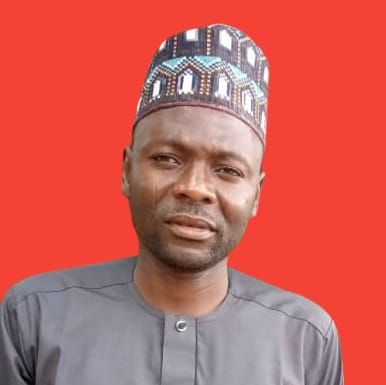By Bagudu Mohammed
If there was one person who stole the spotlight during the recent Anambra gubernatorial election, it was the bold and spirited Chioma Ifemeludike. Her ambition to run for governor was as audacious as it was refreshing, an act many critics dismissed as “an illusion” or “a dream too far.” Yet, while mockery followed her campaign trail, Chioma wore her courage like a crown. She smiled through ridicule, kept her optimism alive, and believed that her popularity and connection with the people could open the doors of governance. Her confidence was infectious, the kind that challenges the idea of impossibility. But what unfolded revealed not just her bravery, but the irony of Nigeria’s political landscape, where fame, talent, and influence rarely translate into political victory.
Chioma Ifemeludike: actress, filmmaker, activist, and politician, contested under the African Action Congress (AAC). With a background in Political Science and civil rights advocacy, she hoped to redefine leadership in Anambra by focusing on education, security, and fairness. Yet, her campaign drew more attention for her fashion and confidence than her policies. Social media buzzed with mixed opinions, her dress became the talk of the town, and her image became a meme for the daring. Still, she remained undeterred, reminding Nigerians that courage, not conformity, is the true spirit of democracy. When the results came, she had earned only 292 votes, but instead of despair, she hosted a lunch for her voters. This gesture turned her name into a national conversation. Intel Region’s headline captured it best: “AAC Candidate Ifemeludike Invites Her 292 Voters to Lunch After Losing Anambra Election.” Her defeat became her victory, a symbol of authenticity in a system that rewards deception.
The irony of Nigerian politics lies in its paradoxes. The nation prides itself on democracy but often measures leadership through wealth, not ideas. Familiarity and emotion, what psychologists call the mere-exposure effect often drive political choices more than logic or competence. People tend to vote for those whose names ring a bell, even if they have never met them. This is why political campaigns invest heavily in visibility, slogans, and repetition, to build a sense of connection. The sociologist Pierre Bourdieu once described this as “symbolic capital,” where recognition itself becomes a form of power. Yet, in Nigeria, even those with abundant symbolic capital like celebrities, media icons, and public figures find that their fame evaporates in the heat of real politics.
Chioma’s story mirrors that of many Nigerian celebrities who have tried to turn fame into political capital. Funke Akindele, beloved for her screen charisma, lost her 2023 deputy governorship bid in Lagos; Banky W, adored for his artistry and integrity, was defeated in Eti-Osa; Tonto Dikeh, Femi Branch, 9ice, Caroline Danjuma, and Olumide Oworu all tasted similar disappointment. Only a few, like Desmond Elliott, have managed to convert celebrity status into political success. Yet, the pattern remains: fame may open doors to influence, but it does not build the house of power. The difference lies in what political scientist Max Weber called “legitimate authority” the ability to inspire trust beyond personality.
Interestingly, this Nigerian paradox contrasts with global examples where entertainers have successfully crossed into politics. Ronald Reagan became the 40th President of the United States; Volodymyr Zelenskyy, a comedian, became Ukraine’s wartime leader; Arnold Schwarzenegger turned from Hollywood star to California’s governor; and Imran Khan, Pakistan’s cricket hero, rose to premiership. Their success stories show that fame can be a foundation for political power, but only when coupled with vision, preparation, and public trust. Fame may introduce a candidate, but it is competence that keeps the audience seated.
Why then do Nigerian celebrities struggle where others succeed? Research on political behavior in Africa points to weak institutional structures, patronage politics, and ethnic-religious loyalties as major barriers. Nigerian elections are rarely about ideas; they are about networks, resources, and influence. Many celebrities, accustomed to admiration, underestimate the machinery of power. They rely on social media applause instead of grassroots engagement. They campaign online while their opponents buy loyalty offline. They forget that the “likes” on Instagram don’t count at the ballot box. As Nigerian political scholar Eghosa Osaghae once noted, “the Nigerian voter is moved less by ideals than by identity and interest.”
Chioma Ifemeludike’s 292 votes may seem small, but they symbolize something larger defiance against political cynicism. Her courage to contest in a system designed for the powerful makes her a moral victor. She reminds us that democracy is not about how many people cheer you online, but how many believe in your sincerity. Her story also exposes a truth that Nigeria must confront: we cannot keep measuring leadership potential by wealth or patronage while mocking those who dare to dream differently. Perhaps her 292 votes represent the conscience of a nation still struggling to reconcile fame with trust, glamour with governance, and admiration with action.
In the end, Chioma’s experience raises an uncomfortable but necessary question: if celebrity fame and millions of followers don’t guarantee political success, how real is Regina Daniels’ threat that her 15 million followers could unseat her husband, Senator Ned Nwoko, if she wished? In the theatre of Nigerian politics, the applause may be loud, but when the ballots are counted, it is often silence that speaks the truth.


